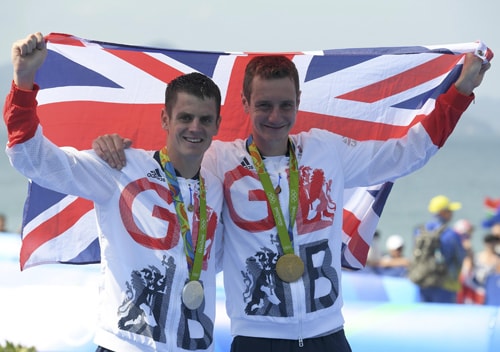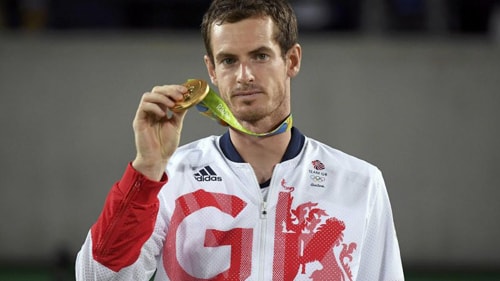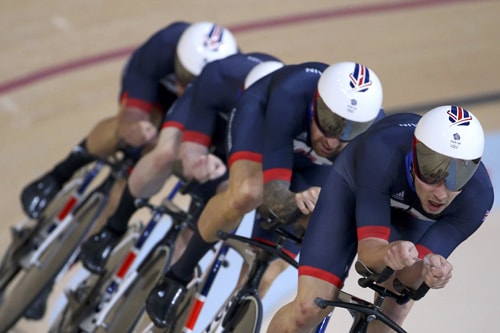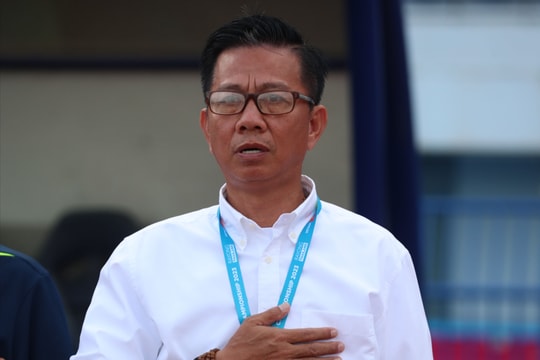Why British sports flourished at the 2016 Olympics
Heavy investment and long-term strategy helped Britain have the most successful Olympics in its 108-year history.
 |
Brothers Alistair Brownlee (right) and Jonathan Brownlee won gold and silver medals in the triathlon for Great Britain at Rio 2016. Photo: Reuters. |
Sadness in exchange for joy of victory
To achieve success like at Rio 2016, British sport must thank the people who dream of changing their lives every week by buying lottery tickets. The more sadness of the unlucky people who buy lottery tickets, the higher the chance of winning for the athletes.
The National Lottery is the biggest funder of British sport, spending 20% of its revenue on athletes. This represents three-quarters of the UK sport budget. The decision was made after the British team returned from Atlanta 1996 with just one gold medal, finishing 36th overall, below Kazakhstan, Algeria and neighbours Ireland. Former British Prime Minister John Major was behind the groundbreaking decision. The politician supported the change in the sports system after the humiliating 1996 performance.
John Major's vision has seen British sport rise to the top. They finished 10th in the medal table at the 2000 and 2004 Olympics, fourth in 2008 and third on home soil in 2012. At this year's Olympics, Great Britain overtook China to climb to second place with 27 gold medals. Their haul in Rio de Janeiro alone is more than the total number of gold medals won by Great Britain in the six consecutive Olympics between 1976 and 1996.
 |
Andy Murray is a rare case of using his own money to compete at the 2016 Olympics for Great Britain. Photo: Reuters. |
According to the New York Times (USA), investment in British athletes alone in 2016 reached 460 million dollars, compared to 77.5 million in 1996. This heavy investment is the biggest reason why the foggy country has become one of the giants of world sports.
In 1996, British medallists at the Atlanta Olympics received $5,200 a year, while in 2016 that figure rose to $37,000. In addition, key athletes were given an additional $47,000 to $79,000 for coaching and training needs. This made each medal won by the British team at Rio 2016 cost an average of $6.5 million (VND145 billion).
Invest in key subjects
TBritish sport has been investing heavily, but not indiscriminately. British sports authorities have been very clear in choosing key sports, rather than investing in sports that are unlikely to compete for medals at the Olympics. Basketball, a sport that has a lot of interest, has been a victim of this policy. After the 2012 Olympics, Britain decided to stop investing in basketball, and pay special attention to cycling - a sport that has won many gold medals.
The focus has helped the UK cut development time in sports science, psychology, engineering, coaching and talent scouting. Despite the backlash against abandoning popular sports such as basketball and volleyball, this centralised approach is paying off.
 |
Great Britain track cycling team. Photo: Reuters. |
The most obvious example is cycling. Dave Brailsford, Head of Cycling for British Cycling from 1997 to 2014, used science and technology to study every little detail to improve performance. Once the best solution was found, each piece was put together to perfect the entire training and competition process. From winning just two bronze medals at the 1996 Olympics, British cycling won six gold medals, four silver medals and two bronze medals at this year's Olympics.
Last year, the British government announced a 29% increase in its sports budget, which is seen as a long-term guarantee for the sport sector heading into the 2020 Olympics and beyond. With sport seen as a new source of national pride and a soft power projection in diplomacy, the British government will not hesitate to pour more money into the coming years.
According to VNE




